News
PESA does not sell or take commission from any of the events listed on this website.
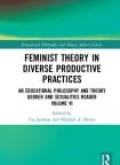 | Jackson, Liz & Peters, Michael A., Feminist Theory in Diverse Productive Practices: An EPAT Gender & Sexualities Reader, Volume VI, (Routledge) 2019Feminist Theory in Diverse Productive Practices is the second of two volumes examining gender and feminist theory in Educational Philosophy and Theory. This collection explores the difference that gender and sexual identities make both to theorizing and working in education and other fields. As the articles contained in this text span nearly 40 years of scholarship related to these issues, this volume sheds light on how feminist, gender, and sexuality theory has evolved within and beyond the field of philosophy of education over time. |
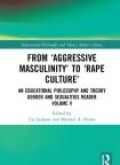 | Jackson, Liz & Peters, Michael A., From ‘Aggressive Masculinity’ to ‘Rape Culture’: An EPAT Gender and Sexualities Reader, Volume V, (Routledge) 2019From ‘Aggressive Masculinity’ to ‘Rape Culture’ is the fifth volume in this series and explores the relationship between gender and sex roles and socialisation and education, foregrounding issues of inequity and different forms of oppression in various contexts. It tells a rich story of transformation of a field over nearly half a century, in relation to the theorisation of gender and sexuality in educational philosophy and theory. The transformation of this field is mapped on to broader social trends during the same period, enabling a better understanding of the potential role of educational philosophy and theory in developing feminist, queer, and related veins of scholarship in the future. |
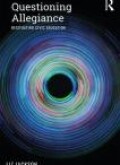 | Jackson, Liz, Questioning Allegiance: Resituating Civic Education, (Routledge) 2019Education about living in society and in the world is a vital task of schools. Yet such civic education is not always critically examined, and few among us have been encouraged to reflect on our civic education experiences. Around the world, one’s civic education most often looks like a black box. How it works is unclear. When human harm, violence, and oppression can be seen in a wide variety of contexts, it is worth critically examining civic education. Could it be that civic education is not playing a helpful role in society? Can it be done differently and better? As one reflects on the contemporary social world, it is helpful to examine the assumptions surrounding education for living together, to think about current modes and possible alternatives. Otherwise, one might end up promoting allegiance to civic and partisan entities which are themselves black boxes (the ‘nation’, the ‘people’), failing to notice when and how what goes on in civic education is morally questionable. |
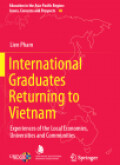 | Pham Lien, International Graduates Returning to Vietnam, (Springer : Singapore) 2019Discourses in international education have largely focused on economic and political imperatives, which emphasise institutional measures such as student mobility, international partnerships and alliances as evidence of efficiency and achievement. This book shifts that thinking to consider international education as a potentiality for ethical development. Combining Amartya Sen’s capability approach and Pierre Bourdieu’s theory of social practices to conceptualise normative agency and situated freedom, the book examines returning Vietnamese international students’ involvement, or at least scope for agentic involvement, in their everyday practices, and, from that, understanding their empowerment as a process of personal and social change. |
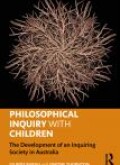 | Burgh, Gilbert & Thornton, Simone, Philosophical Inquiry with Children: The Development of an Inquiring Society in Australia, (Routledge: Abingdon) 2018Philosophy in schools in Australia dates back to the 1980s and is rooted in the Philosophy for Children curriculum and pedagogy. Seeing potential for educational change, Australian advocates were quick to develop new classroom resources and innovative programs that have proved influential in educational practice throughout Australia and internationally. Behind their contributions lie key philosophical and educational discussions and controversies which have shaped attempts to introduce philosophy in schools and embed it in state and national curricula. |
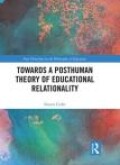 | Ceder, Simon, Towards a Posthuman Theory of Educational Relationality, (Routledge) 2018Towards a Posthuman Theory of Educational Relationality critically reads the intersubjective theories on educational relations and uses a posthuman approach to ascribe agency relationally to humans and nonhumans alike. The book introduces the concept of ‘educational relationality’ and contains examples of nonhuman elements of technology and animals, putting educational relationality and other concepts into context as part of the philosophical investigation. Drawing on educational and posthuman theorists, it answers questions raised in ongoing debates regarding the roles of students and teachers in education, such as the foundations of educational relations and how these can be challenged. |
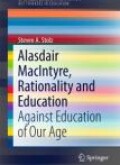 | Stolz, Steven, Alasdair MacIntyre, Rationality and Education: Against Education of Our Age, (Springer) 2018Despite Alasdair MacIntyre being known as an academic who has made many notable contributions to a range of areas in philosophy, his thinking on education is not as well-known and/or properly understood by most audiences and readerships that predominantly reside in educational contexts. With this in mind, this book aims to provide a critique of MacIntyre’s thinking about education, and hence commences with a central theme found in MacIntyre’s extensive corpus concerning the fragmentation and disunification of ideas found in our culture and society that stems both from the rejection of metaphysics and what it means to be a human being living within the context of history. According to MacIntyre, part of the problem why this has occurred is due to educational institutions, particularly universities failing to resist the pressure exerted from industry and the state to conform. Unfortunately, this has resulted in a type of intellectual dissensus where the shared conceptions of rational enquiry and the role of reason have been replaced by pluralistic notions of private and personal choices concerning the good, and a disillusionment with reason that is ultimately exhibited as apathy and conformism. In order to overcome this apathy and conformism found in our culture and society, MacIntyre’s educational project is concerned with the cultivation of rationality; however, this is not an easy undertaking because it involves students being confronted with alternative – sometimes rather hostile – rival traditions so they both come to see rival points of view and understand that each tradition, including their own, does not come from a neutral or value-neutral standpoint. To MacIntyre, dialectical encounters between traditions is a crucial starting point of a good education, but for intellectual and academic progress to be made, rational enquiry needs to be grounded in a shared understanding of first principles that aims at truth and rational vindication. |
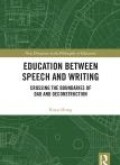 | Hung, Ruyu, Education between Speech and Writing Crossing the Boundaries of Dao and Deconstruction, (Routledge: London) 2018This unique book explores how graphocentrism affects Chinese education and culture. It moves away from the contemporary educational practices in China of following the Western model of phonocentrism, to demonstrate that each perspective interacts and counteracts with each other, creating a dialogue between Eastern and Western thought. |
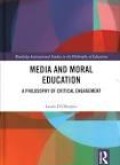 | D'Olimpio, Laura., Media and Moral Education: A philosophy of critical engagement, (Routledge: London) 2018In an age of mass art and social media, the ability to identify reliable sources of information and disregard unreliable ones has become a vital skill. Yet, the educational environment has not kept pace with rapid advances in technology, despite the fact that educating students to engage critically and compassionately with others via online media is of the utmost importance. Media and Moral Education: A philosophy of critical engagement addresses this oversight by demonstrating that the study of philosophy can be used to enhance critical thinking skills that are sorely needed in today’s technological age. |
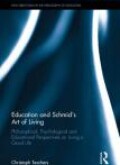 | Teschers, Christoph, Education and Schmid's Art of Living, (Routledge: London) 2017Instead of simply following the current neoliberal mantra of proclaiming economic growth as the single most important factor for maintaining well-being, Education and Schmid’s Art of Living revisits the idea of an education focused on personal development and the well-being of human beings. Drawing on philosophical ideas concerning the good life and recent research in positive psychology, Teschers argues in favour of shifting the focus in education and schooling towards a beautiful life and an art of living for today's students. |
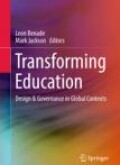 | Benade, Leon; Jackson, Mark, Transforming education: Design and governance in global contexts, (Springer: Singapore) 2017This book is an edited collection grouped into three key thematic areas. Its authors are researchers and theoretical scholars in the fields of education curriculum, education technology, education philosophy, and design for education. They present primary research and theoretical considerations, descriptive accounts and philosophical reflections to provide readers with a broad sweep of the ‘state of play’ in thinking about the place and space of learning. |
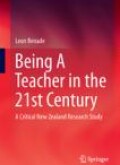 | Benade, Leon, Being a teacher in the 21st century: A critical New Zealand research study, (Springer: Singapore) 2017This book provides scholars, teacher educators, as well as reflective school leaders and teachers with valuable insights into what it is to be a teacher in the 21st century. It does so by presenting original research based on a study of several New Zealand schools between 2013 and 2015, and in particular, a focussed study of four of those schools in 2015. |
